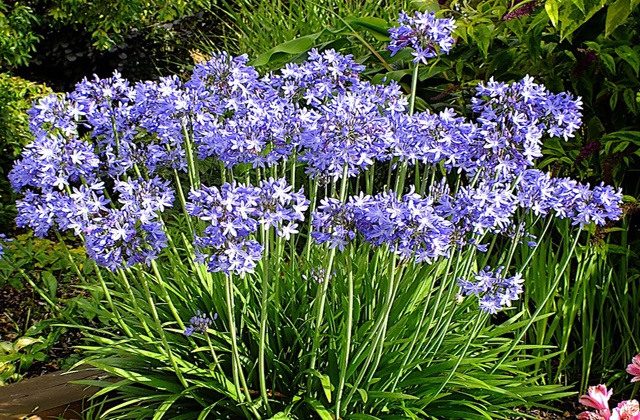Africa is a breathtaking continent, rich in history and opulent in culture. Along with their natural sustainability for art and music, Africa is also know for mega industry positions within banking, consumer goods, oil, gas and agriculture, which many people are unaware of. Perhaps the reason why Africa doesn’t come to mind as a lush spot for farming and harvest might be because we think of the topography as being too arid or dry. Unbeknown to the masses, Africa actually has areas where the land is lush and ideal for growing stunning blooms to be shipped all over the world! In fact, product from this region is escalating in demand, skyrocketing this particular segment of their economy in recent years. So what are the most desired African species the floral industry is seeking currently?

photo credit via http://fairweathers.co.uk
Agapanthus
Otherwise known as “The African Lily”, this variety has remained one of my favorites through the many years spent in the flower business due to its stunning color and playful architecture that makes any arrangement “pop”. This bulb enjoys the warmth of Africa’s typical temperatures but does well when planted in pots as well. Fortunately, the agapanthus is not accustomed to any major bug problems although this perennial will only bloom certain months of the year from June to July. Also pay particular attention to the plant’s roots since it possesses a rhizome system.
Gloriosa
Gloriosa is a member of the “Colchicaceae” family, which is also a bulb plant that flourishes in moist weather conditions but remains dormant during dry spells. The lily is a “climber” and uses its tendrils to scale over the tops of other flowers, making it a beautiful accent to tropical gardens. Although the colors are bright and decadent, the stems and roots are highly poisonous and at the very least can cause skin irritation to someone who is sensitive to plant toxins. Interestingly enough, African medicine does include some gloriosa samples within certain tonics and elixirs that are said to have great healing powers.
